The study found out that Nuns in Monasteries were relying on outdated, and therefore, inefficient equipment for production of hosts and other commodities which they sold for the communities’ sustenance.
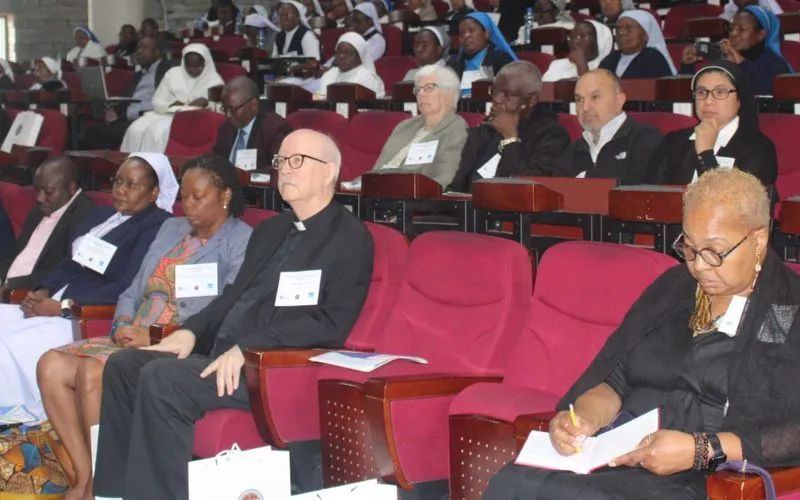 Credit: ACI Africa
Credit: ACI Africa
Issues regarding maintenance of Monasteries also came up in the CERRA-Africa study, Dr. Jeketule said, and explained, “There were deteriorating structures, such as leaking roofs, and incomplete Monastery blocks.”
Lack of medical insurance was another big problem that the research on the Monasteries in sub-Saharan Africa established. According to the study, an overwhelming 15 out of 26 Monasteries said that they did not have a medical insurance.
“Just imagine, when a sister becomes sick, then what?” Dr. Jeketule posed.
(Story continues below)
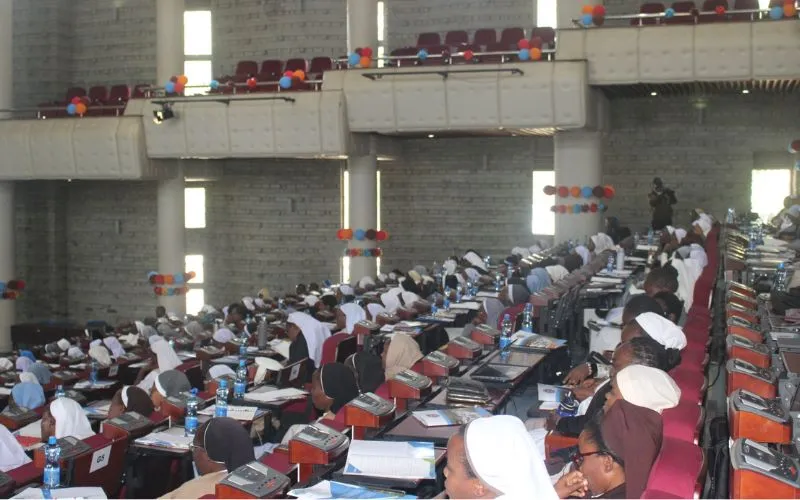 Credit: ACI Africa
Credit: ACI Africa
He also pointed out the issue of “falling perimeter walls” in many Monasteries, an issue that he said posed a serious security challenge to Catholic Nuns in Monastic Life.
The study also found that the Catholic Nuns in Monasteries did not possess marketing skills of the products they made. “They produced nice candles, hosts, and other homemade products, but the marketing of these was actually a challenge,” the CERRA-Africa official said.
Other Monasteries were found lacking basic structures such as infirmaries for first aid, libraries, and in some cases, Chapels. Some Monasteries were found not to have electricity, talk less of vehicles for transport, and the Nuns were using firewood to cook.
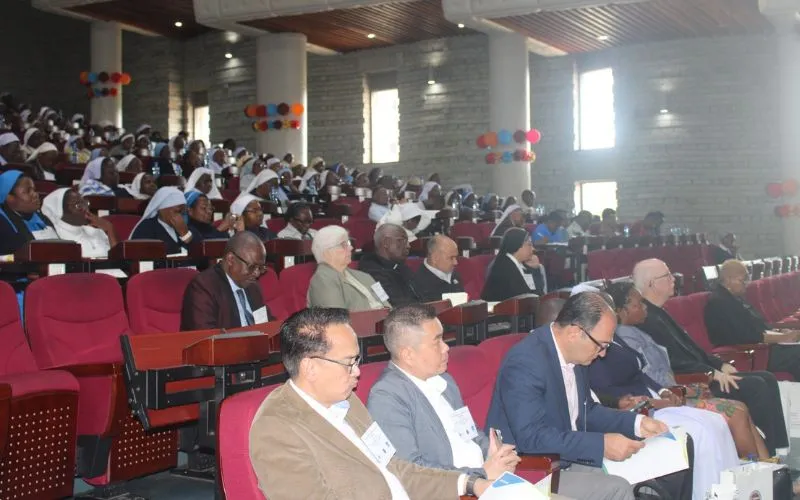 Credit: ACI Africa
Credit: ACI Africa
Dr. Jeketule also pointed out the issue of water and drainage challenges in some Monasteries that he said also had poor drainage systems and structural damage to some of their buildings.
“We noticed leaking roofs, insufficient boreholes, and lack of rainwater wasting systems. Then finally we also noted this big challenge of infrastructure that's not elderly and infirm and disability friendly,” the lecturer and MBA program leader at TU said.
In their study, the CERRA-Africa researchers suggested the installation of solar power and biogas in Monasteries to cut down on electricity costs.
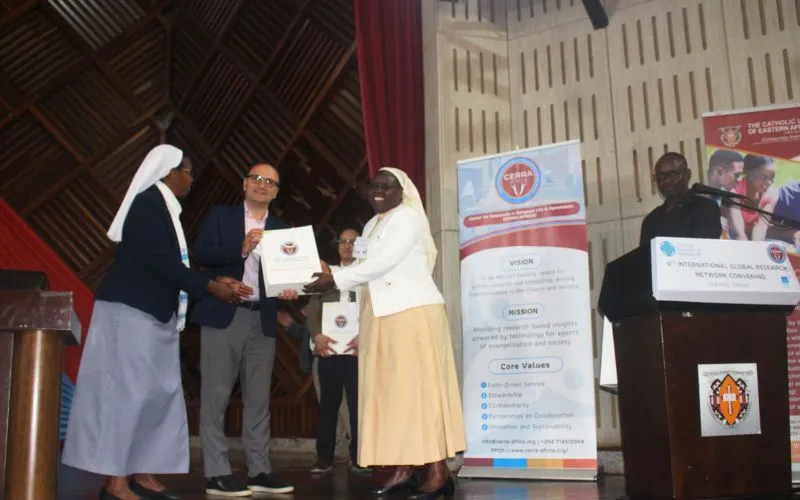 Credit: ACI Africa
Credit: ACI Africa
“We also need to explore a reasonable medical insurance for our Sisters in the Monasteries. That would be really helpful for them,” Dr. Jeketule said.
“We are also thinking of specialization of Monasteries,” the don, who is also a resource person of Pedagogical Leadership in Africa (PEDAL) training that aims at empowering lecturers with skills on course design, facilitation and assessment for learning said, and posed, “Could Monasteries be specializing so there’s no competition among them?”
He also highlighted the need to equip Catholic Nuns in Monasteries with skills to market their products.
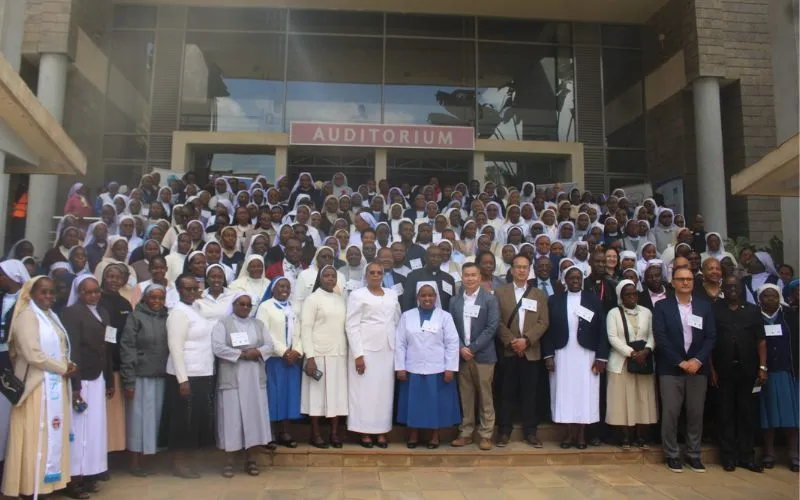 Credit: ACI Africa
Credit: ACI Africa
Held at the Catholic University of Eastern Africa (CUEA) in Nairobi, the June 10-12 research symposium brought together researchers from various Institutes of Consecrated Life and Societies of Apostolic Life (ICLSAL) across Africa and CERRA-Africa’s collaborators from other continents, who spoke about their experiences in their apostolates and ministries.
The symposium, the first of its kind in Africa, saw Catholic Sisters engaged in research collaborate with each other and with others. Their aim was to identify challenges in Religious Life for future initiatives.
Participants in the three-day symposium that was realized under the theme, “Creating Global Impact through Sustainable Development”, presented their experiences in religious formation, education, pastoral care, healthcare, care for the elderly, and other social services.
Agnes Aineah is a Kenyan journalist with a background in digital and newspaper reporting. She holds a Master of Arts in Digital Journalism from the Aga Khan University, Graduate School of Media and Communications and a Bachelor's Degree in Linguistics, Media and Communications from Kenya's Moi University. Agnes currently serves as a journalist for ACI Africa.
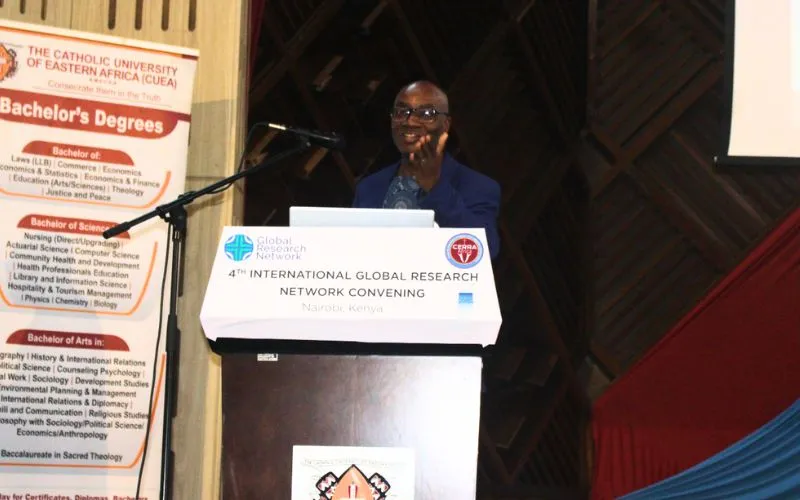 Dr. Jacob Jeketule Soko, a member of CERRA-Africa’s Research Management Committee. Credit: ACI AFrica
Dr. Jacob Jeketule Soko, a member of CERRA-Africa’s Research Management Committee. Credit: ACI AFrica


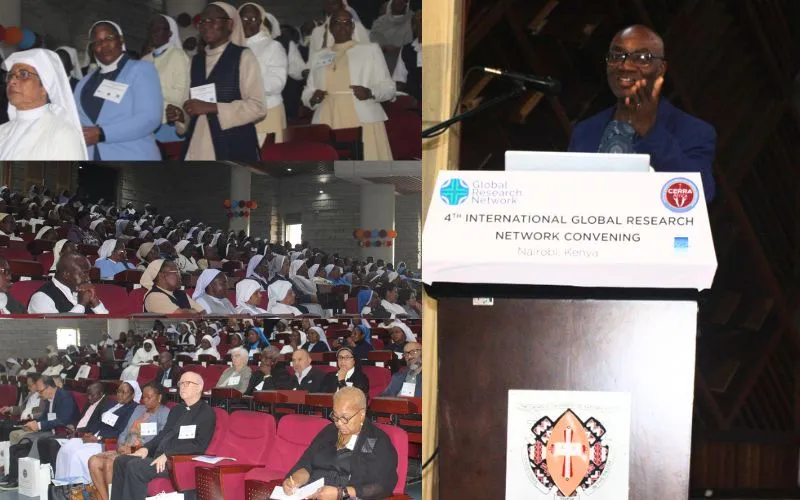
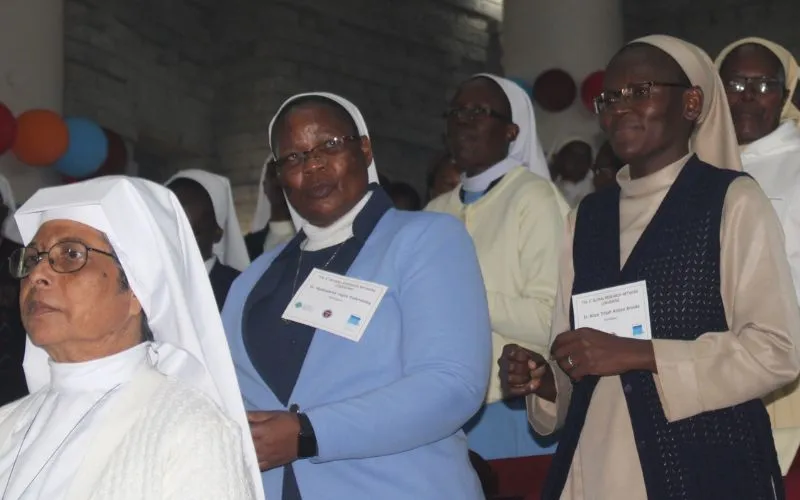 Credit: ACI Africa
Credit: ACI Africa
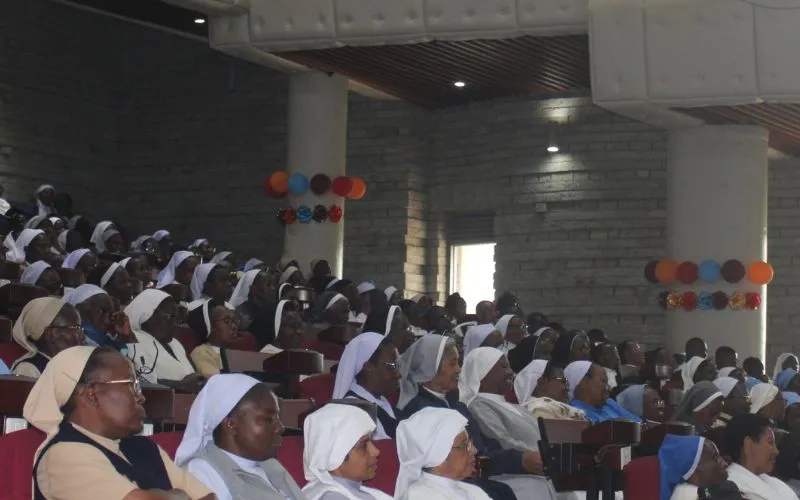 Credit: ACI Africa
Credit: ACI Africa Credit: ACI Africa
Credit: ACI Africa Credit: ACI Africa
Credit: ACI Africa Credit: ACI Africa
Credit: ACI Africa Credit: ACI Africa
Credit: ACI Africa Credit: ACI Africa
Credit: ACI Africa


